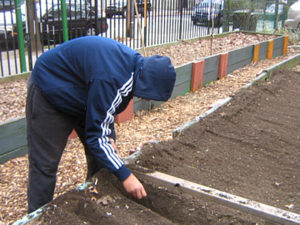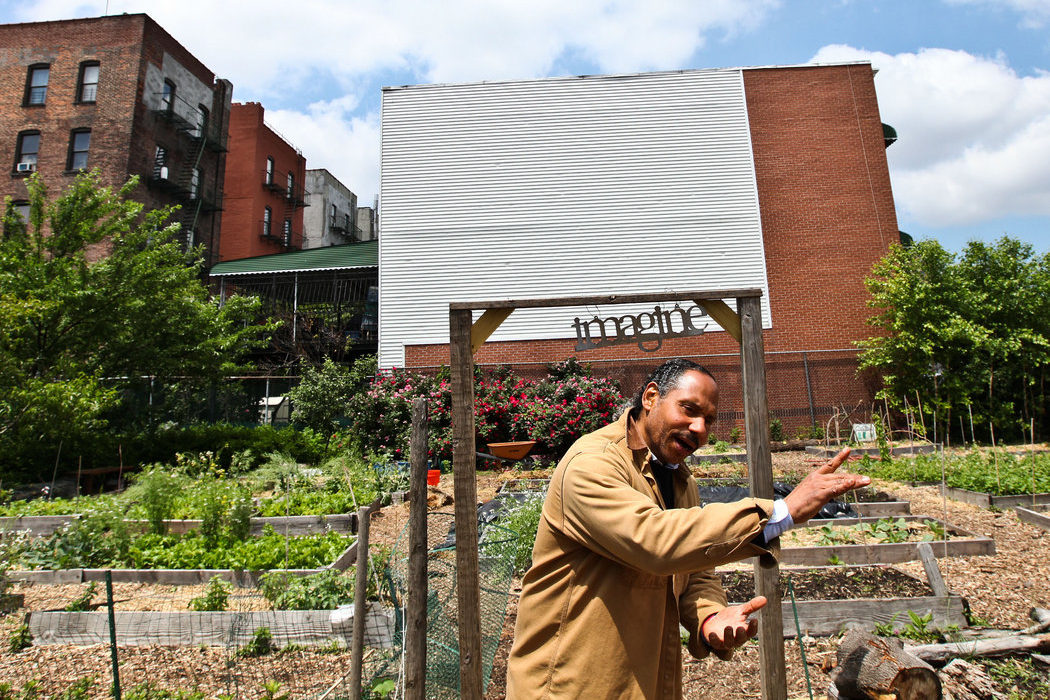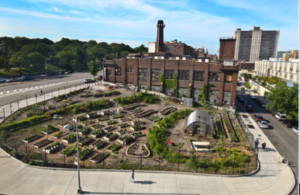They could have been locked up for offenses ranging from theft to assault to armed robbery.
Instead, they planted vegetables at an urban farm, painted a mural to honor a community activist, staged a youth talent show, organized “safe parties” for teens at a local community center – away from the gunfire and stabbings outside.
 The youths came up with a smorgasbord of ways to improve their impoverished Bronx, New York City neighborhood as part of the nonprofit Community Connections for Youth’s South Bronx Community Connections (SBCC) initiative.
The youths came up with a smorgasbord of ways to improve their impoverished Bronx, New York City neighborhood as part of the nonprofit Community Connections for Youth’s South Bronx Community Connections (SBCC) initiative.
By agreeing to participate for at least 60 days in the “positive youth development” SBCC provides, the youths avoid probation and have cases are closed and their records cleared.
Positive youth development has created quite a bit of buzz in juvenile justice circles.
For youths in SBCC, it means a chance at a new life, and the program’s leaders say it’s all about building on youths’ strengths and their ties to the community and family, rather than a “deficit-based” approach focusing more on “at-risk youth,” “dysfunctional families” and such.
Now an independent evaluation by the John Jay College of Criminal Justice in New York City has found that SBCC helped keep youths from returning to crime and being arrested again.
Ray Figueroa, a program director for Friends of Brook Park, said peppers are grown by teenagers working there as an alternative to incarceration.
The bright-green stalks and leaves are tended by a dozen teenage boys who water, lay mulch, pull weeds and wait.
If all goes well, more than 300 pounds of serrano peppers will be harvested in August from the Brook Park community garden in the Mott Haven section of the Bronx, one of the poorest neighborhoods in the city.
Then they will be sold to a New York City-based hot sauce maker for $4 a pound, the proceeds of which will fund small stipends for the teenagers. “We give these 23 urban gardens seeds. They grow the seeds. We buy them back from the people and we pay them $4 per pound,” said Julia Fitzgerald, Bronx Hot Sauce VP of Sales.
The peppers which become hot sauce virtually go from community gardens like the one in Brook Park to businesses like the Bronx Beer Hall where they sell the product to their customers. The company’s mission resonates with the Bronx born Ramirez brothers who own the Beer Hall, along with a media and merchandise company that aims to improve the image of the borough.
“Over the course of three years, in excess of 100 youth that were involved in the program were successfully redirected firm being incarcerated,” said Figueroa, referencing a three-year pilot program implemented by CCFY and certified by the John Jay College of Criminal Justice.
The program found participants were significantly less likely to be rearrested, and the youth they served remained involved in community support networks beyond the duration of their court mandates.
See June 19, 2015 NYT article & photo credit.


